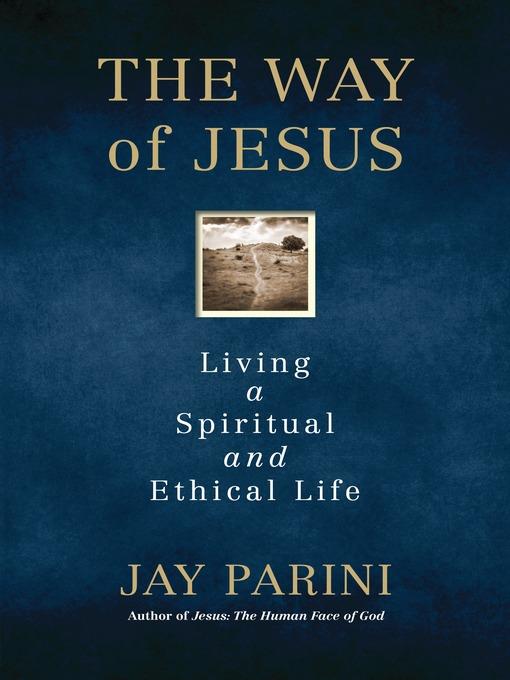
The Way of Jesus
Living a Spiritual and Ethical Life
کتاب های مرتبط
- اطلاعات
- نقد و بررسی
- دیدگاه کاربران
نقد و بررسی

February 1, 2018
Noted author Parini (English, Middlebury Coll.; Jesus, the Human Face of God) is a devout Christian, whose faith animates his intellect and humanity. Part autobiography, part theological reflection, his work divides what it means to be a Christian into four parts, starting with his own faith formation, followed by an explication of Christianity. This is expanded in terms of the liturgical year. Finally, using T.S. Eliot's The Dry Salvages as a scaffold, he outlines how one should live as a Christian. Like Eliot, Parini is a high-church Anglican. Even so, Parini willingly explores and appreciates more conservative expressions of Christianity, as seen in his reflections of his father's evangelical faith. It is also a faith that finds connections with other traditions, such as Buddhism and Hinduism. Little time is spent on attempts to comprehend the ontology of eternal verities; Parini is content with allowing those verities to shape him. VERDICT For readers who are attracted to intellectual rigor, close attention to scripture and tradition, and a contemplative but active spiritual depth, Parini has much to offer.--James Wetherbee, Wingate Univ. Libs., NC
Copyright 2018 Library Journal, LLC Used with permission.

February 1, 2018
A personal look at living through Jesus.Poet and biographer Parini (English and Creative Writing/Middlebury Coll.; Empire of Self: A Life of Gore Vidal, 2015, etc.) provides a slim yet dense volume on what he calls "the way of Jesus." In this attempt to describe the modern life of faith and convince others of its worthiness, the author often falls short. Despite being broken into four distinct chapters, the book is awkwardly structured. Parini begins by telling the story of his faith life, including the usual moments of falling away and a healthy dose of skepticism. The author finally found comfort in modern, liberal Christian theology, and he promotes a "mythic view" of Christianity, which dismisses questions of factual truth and literalism, focusing instead on the larger and more universal truths to be found in Scripture. With this view established, Parini examines the various components of the Christian faith, ranging from the Old and New Testaments to the incarnation. He rejects salvation and resurrection as traditionally understood, arguing instead that Jesus taught "Resurrection Thinking," an ongoing personal renewal. The author moves on to describe the church year from an Anglo-Catholic perspective, and he concludes with a chapter heavily laden with wisdom from T.S. Eliot. As for "the way of Jesus," Parini uses the term widely and defines it in various ways, as "a road," a move toward transformation, "the story of Incarnation," and "a way of life." The author offers a view of Christianity that many readers may find difficult to accept. Steeped in tradition, established prayers, and even the use of rosaries, at the same time it is vague, open-ended, and personalized. "Is Jesus God?" the author asks at one point; "Yes and no," is his answer. Parini presents Christianity as a way of life but not as a path toward truth.A scattershot introduction to Christianity for the skeptical.
COPYRIGHT(2018) Kirkus Reviews, ALL RIGHTS RESERVED.

March 26, 2018
In this gracious and instructive book, poet and novelist Parini (The Last Station) builds a plan for living out what Jesus meant when he commanded his followers to put love first. Parini describes growing up in Scranton, Penn., and how his father’s conversion to Christianity forced a shift in his own thinking about faith. Although he believed in Jesus, his father’s frequent sermonizing made him question whether the followers of all other religions were really doomed to hell. This curiosity then opened him to teachings from Buddhism and Hinduism, which led the way to his concluding that “belief is simply a fondness, a yearning; not a contractual arrangement with God.” Parini breaks the book into four sections discussing his own faith journey, the history of Christian thinking, the church calendar year, and a selection of poems by T.S. Eliot. Devout readers will find the third chapter, “The Christian Mind,” especially relevant as he confronts the claims of prosperity gospel preachers, processes political corruption in the Vatican, and considers the collateral effects of the Protestant Reformation. In the final chapter, Parini eloquently mines Eliot’s Four Quartets as inspiration for living a life filled with “prayer, observance, discipline, thought, and action,” which also serve as his keys for living a spiritual and ethical life. Parini’s thoughtful book will appeal to devout Christians as well as skeptical readers interested in the teachings of Christ.

























دیدگاه کاربران